People have always been curious about their bodies, especially about sexual health and sexual organs. Nowadays, the internet lets us ask even the most personal questions without feeling shy. Some questions about sexual organs are asked a lot because people are interested in how their bodies work, how they can feel better, or how they can change the way they look.
We’ll look into some of the top questions people have about sexual organs. These questions cover a wide range of topics, from basic information about body parts to how to improve or understand different experiences.
By answering these questions, we hope to share useful and easy-to-understand information about sexual organs, helping people learn more about their bodies and how to take care of their sexual health.

1. How to measure penis?
Measuring penis size is a topic that is often surrounded by misinformation and insecurity. It’s important to approach this subject with sensitivity, understanding its delicate nature. Whether for personal knowledge, medical health tracking, or other reasons, knowing how to accurately measure penis size is crucial. Here’s a step-by-step guide on how to do it:
What You Need
- A flexible measuring tape or a ruler
- A string (optional, if using a ruler instead of a measuring tape)
- A pen and paper for recording measurements (optional)
Steps for Measuring Length
- Achieve an Erect State: Penis size should be measured when the penis is in its erect state because its length and girth can significantly vary between flaccid and erect states.
- Position the Ruler: Place the ruler or measuring tape at the base of the penis, where it meets the pubic bone. This is important for consistency and accuracy in measurement.
- Measure to the Tip: Extend the ruler along the top of the penis to the very tip. Be careful not to press into the pubic bone too much, as this can give an inaccurate measurement.
- Note the Measurement: Observe and record the measurement from the base to the tip. It’s helpful to do it a couple of times to ensure accuracy.
Steps for Measuring Girth
- Achieve an Erect State: As with length, girth measurements should be taken when the penis is erect.
- Wrap the Tape: Use a flexible measuring tape or a string to wrap around the thickest part of the penis. This is often around the middle of the shaft.
- Record the Measurement: If using a measuring tape, read the measurement directly. If using a string, mark where the end meets the string, then measure the length of the string up to the mark with a ruler.
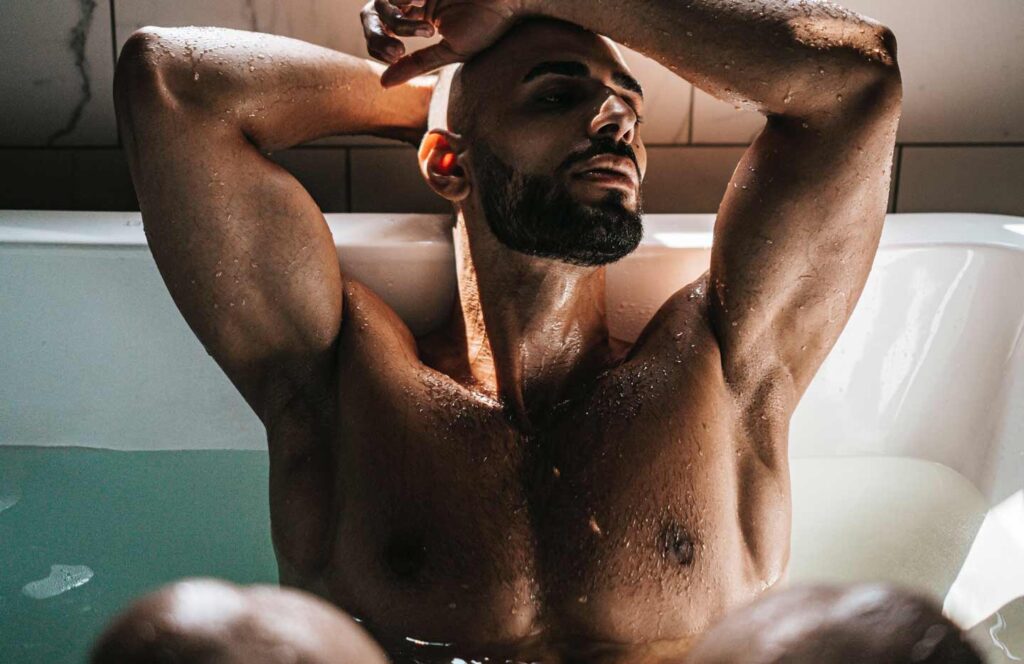
2. How to get a bigger penis?
Lots of folks feel their penis should be bigger because of what they see on TV or online, but remember, those aren’t always real. Most partners are happy with how their partner’s sexual organs are. But if it’s something you’re thinking about, here are some ideas:
1. Healthy Living
- Staying Fit: Exercise and eating right make you healthy and can make your penis look bigger by cutting down fat around it.
- Tighten Up Below: Doing special exercises called Kegel makes the muscles down there stronger and can help you look fuller.
2. Doctor’s Advice
- Talk to a Doctor: Always chat with a doctor first to know what’s safe.
- Medicine: No pills make your penis bigger, but some for erection problems help it get more blood, making it look bigger for a while.
3. Big Decisions: Surgery
- Operation: There’s surgery to make your penis bigger, but it’s a big step and can be risky. Talk a lot with a doctor first.
4. Talking Helps
- Feeling Better About Yourself: Sometimes, chatting with someone like a therapist is a good idea to feel better about how you look.
5. Tools and Gadgets
- Pumps: They can make your penis look bigger for a bit, but don’t overdo it, or it might hurt.
- Stretchers: Some gear claims to stretch your penis to make it bigger. If you go this route, be careful and gentle.
You might also be interested in: Male Genital Reflexology
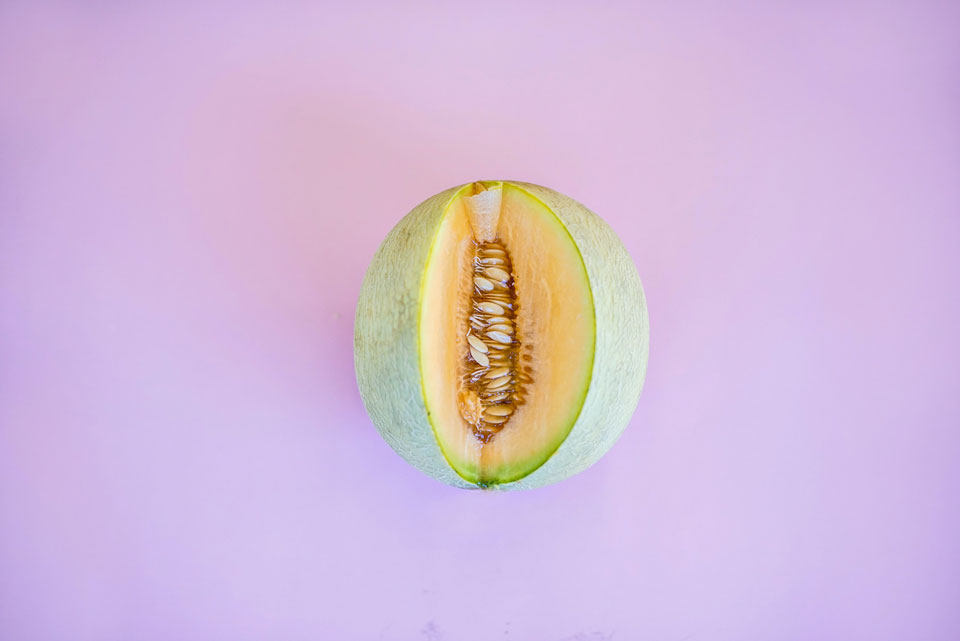
3. How Deep Is A Vagina?
The vagina is a part of the female body that is elastic and muscular. It has many roles, such as being the birth canal during childbirth and being part of the female reproductive system. On average, a vagina is about 3 to 6 inches long (which is about 7.5 to 15.2 centimetres), but this can be different for each person.
The cool thing about the vagina is that it can stretch and get longer when a woman is sexually excited. This happens because the upper part of the vagina can expand to make space for penetration. This stretchiness is also super important during childbirth, allowing the vagina to stretch enough for a baby to come out.
The inside walls of the vagina have special linings that keep it moist and healthy. This lining also helps protect against infections and makes sex smoother by providing natural lubrication.
It’s good to know that everyone’s body is different, and the size of the vagina can vary a lot from person to person. If someone is worried about their health or their body, talking to a doctor is a good idea. They can give advice that suits each person’s needs. Just like every other body part, vaginas come in different sizes and shapes, and this variety is completely normal.
You might also be interested in: Vulva types and why your vagina is completely normal
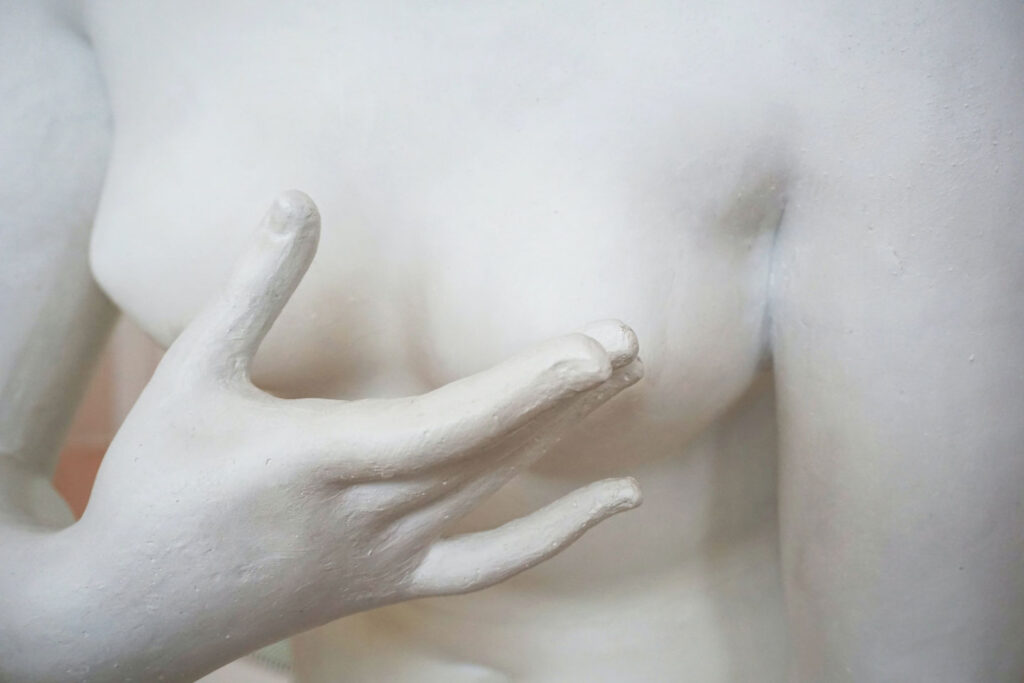
4. How to Get Bigger Boobs?
It’s important to first acknowledge that individual breast size is largely determined by genetics, body weight, and age. However, there are some methods that can be explored to potentially give the appearance of larger breasts or, in some cases, actually increase breast size. Here are several approaches:
- Exercise: Doing exercises like push-ups can make the muscles under your boobs bigger, which can make your boobs look a bit larger.
- Eat Healthy: Having a good diet can affect how big your boobs are since they are partly made of fat. But remember, it’s important to stay healthy overall.
- Stand up Straight: Having good posture can make your boobs look better. Stand tall with your shoulders back.
- Clothes and Bras: Wear bras that push up your boobs or make them look bigger. Also, some tops with special designs can make your boobs stand out more.
Doctor-Approved Ways
- Surgery (Implants): Doctors can put silicone or saline implants under the skin to make boobs bigger. This change is a big one.
- Fat Transfer: Doctors take fat from other places on your body and put it in your boobs. It looks more natural but doesn’t make as big a change as implants.
- Hormone Pills: Sometimes, taking hormone pills can make boobs a bit bigger, but this isn’t very common because it can have side effects.
Things to Think About
- Talk to a Doctor: Always talk to a professional before deciding, especially for surgery or hormones.
- Know the Risks: Every treatment or surgery has some risks, so understand them well.
- Be Realistic: Natural ways don’t change your size too much. Surgeries give the biggest change but know what is possible.
- Love Yourself: It’s good to want to change things, but it’s also important to be happy with your body. Being confident is very attractive.
Always make body change decisions by thinking about your health first and getting advice from doctors.
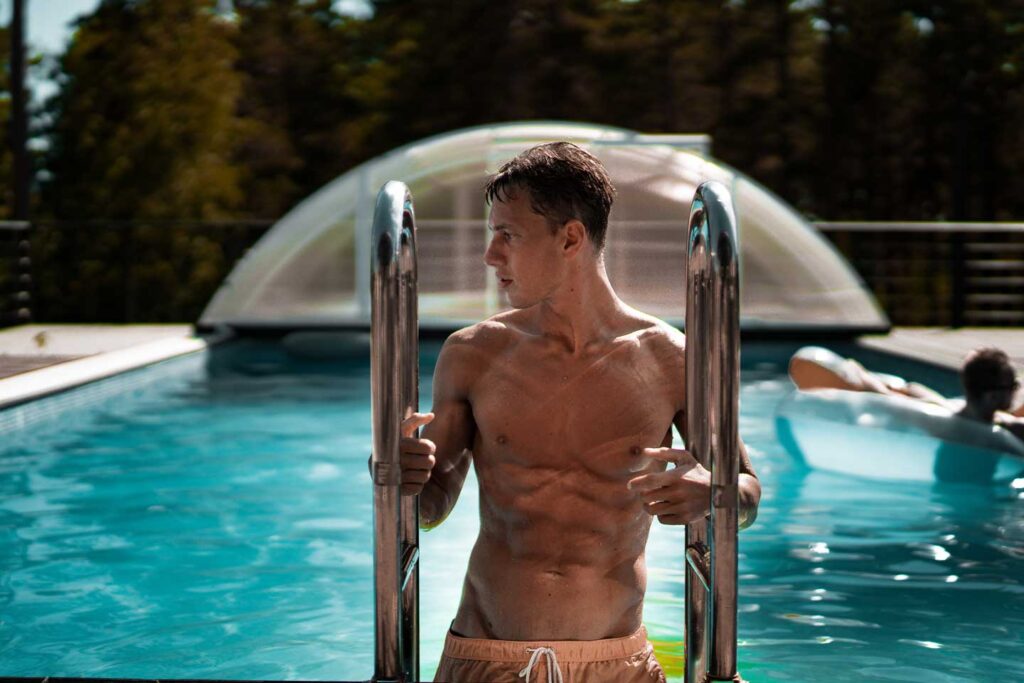
5. When Does You Penis Stop Growing?
The penis starts to grow bigger when a boy hits puberty, which can be any time between 11 and 16 years old. During puberty, lots of changes happen in the body, like the penis and testicles getting bigger, because of hormones like testosterone. The penis grows quickly at first and then more slowly until it stops.
For most guys, the penis stops getting bigger by the time they are 18 years old, but for some, it can keep growing until the early twenties. When the penis stops growing depends a lot on genes, which means it runs in the family. Everyone is different, so there are many normal sizes for a penis.
Some boys worry about their penis size or when it will stop growing, but usually, there’s no need to worry. How big a penis gets and when the growing stops vary from person to person. If someone is really concerned about it or notices other problems, it’s a good idea to talk to a doctor. The doctor can give information and help that fits each person’s needs.
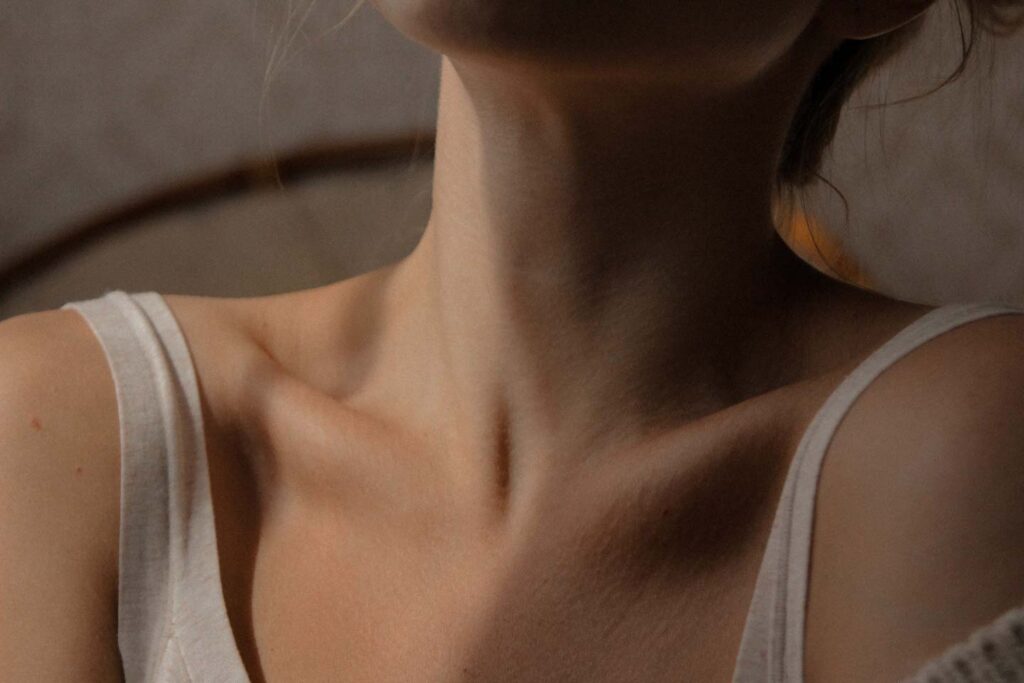
6. Why Do My Boobs Hurt?
Breast pain can happen for many reasons, and it’s usually not something to worry about too much. Here are some common causes:
- Hormones: Changes in your body’s hormones because of your period, having a baby, or getting older can make your breasts sore.
- Breast Structure: The way your breasts are made, including how big they are, can affect how they feel.
- Cysts: Sometimes, small bags of fluid can form in your breasts, and they can hurt.
- Medicines: Some drugs, especially those for hormone therapy or helping you get pregnant, can make your breasts hurt.
- Breast Injury: If you’ve hurt your breast before, it might still be sore.
- Wrong Bra: If your bra doesn’t fit right, it can make your breasts painful.
- Breastfeeding: Moms who breastfeed might have sore breasts because of milk buildup, clogged milk ducts, an infection, or a yeast infection.
- Stress: Being really stressed can also make your breasts hurt because it messes with your hormones.
- Fibrocystic Changes: Some women have breast tissue that feels bumpy, and while it’s not dangerous, it can be uncomfortable.
If your breast pain is really bad, doesn’t go away, or if you notice other things like a new lump, liquid coming out of your nipple, or changes in how your breast looks, you should see a doctor to make sure everything is okay.
You might also be interested in: Breast Massage
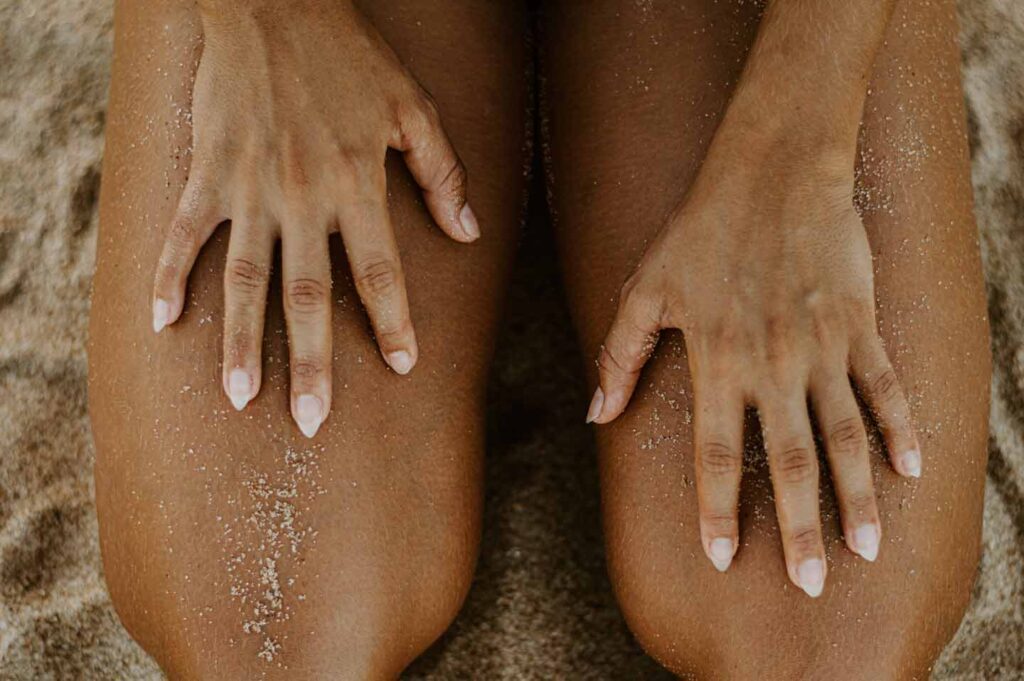
7. When Do Boobs Stop Growing?
Breasts start growing when puberty begins, which can be anywhere from 8 to 13 years old, and they usually keep changing until a person is about 18 to early 20s. But, everyone is different, so some people might notice their breasts keep changing a bit longer.
Breast size can also change later in life due to weight changes, having babies and breastfeeding, or when going through menopause. This happens because breasts are made of fat, glandular tissue, and connective tissue, so when a person gains or loses weight, their breast size can change too.
It’s also normal for breasts to be different sizes from each other. If you’re worried about your breast development or other sexual organs health, talking to a healthcare provider is a good idea. They can give you information and support based on your personal health and development.
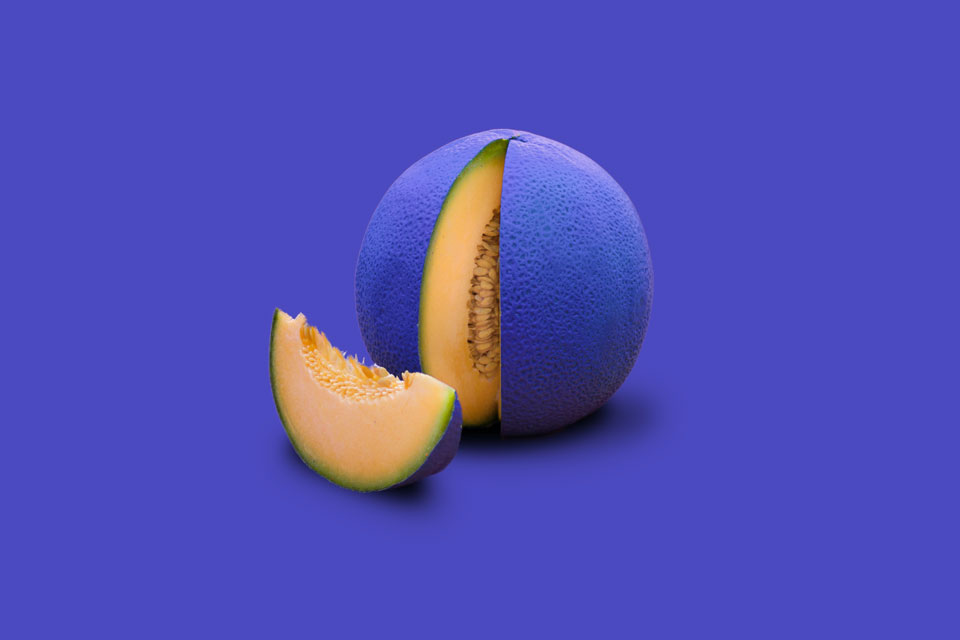
8. Where Are Your Ovaries?
The ovaries are a pair of small sexual organs that look like almonds and can be found on each side of a woman’s lower belly, close to where the uterus is. These organs are part of what makes a woman able to have babies. They are pretty small—about the size of an almond—but they do a very important job.
From the time a girl is born, her ovaries have thousands of tiny eggs. When she grows up and starts having periods, once every month one ovary will release an egg. This is called ovulation, and its part of how a baby can start to grow.
Besides holding eggs, the ovaries also make special chemicals called hormones, like oestrogen and progesterone. These hormones help women with things like growing breasts during puberty, controlling the periods, and keeping the body ready for making a baby.
Ovaries need to be healthy to do all these jobs. If there’s a problem with the ovaries, it can make someone feel sick and might make it hard for her to have a baby. Keeping the ovaries healthy is very important for a woman’s body.
You might also be interested in: Anatomy of Female Sexual Organs
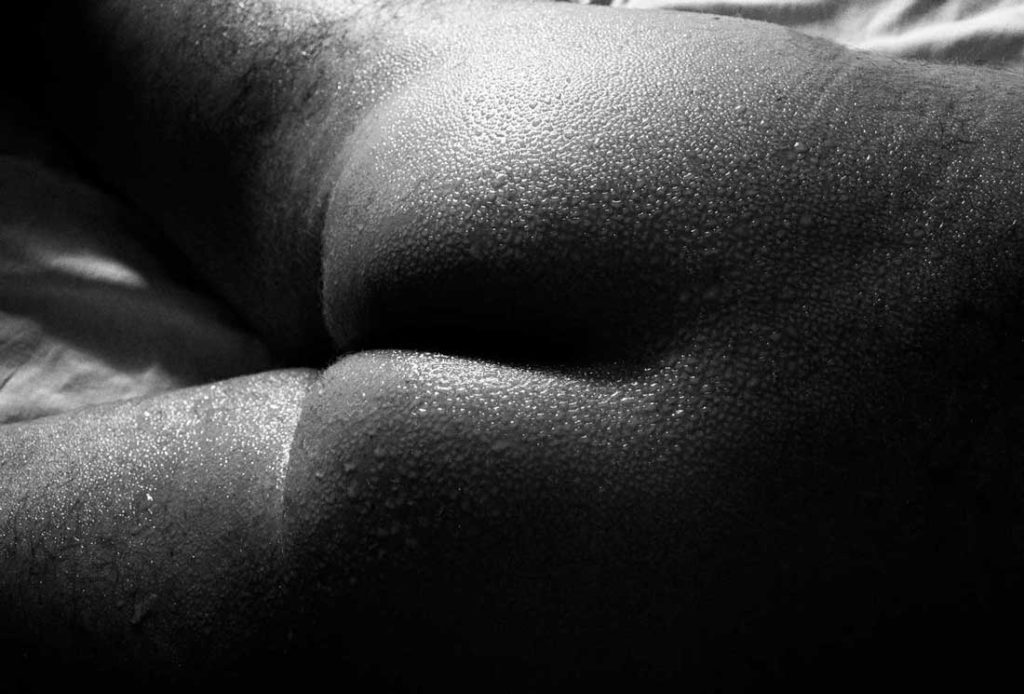
9. How to Have a Prostate Orgasm?
Achieving a prostate orgasm involves stimulating the prostate gland, which is located inside the male body, a few inches up the rectum near the bladder. Many people find prostate orgasms to be intense and pleasurable.
Here are some steps and tips on how to explore prostate orgasms safely:
1. Get Ready
- Relax: Find a quiet and comfy place.
- Talk: If you’re with someone, talk about what you’re okay with doing.
- Clean: Take a shower and use the toilet. Maybe use an enema if you like.
- Lube: Use lots of lube to make things slippery and safe.
2. Finding the Prostate
- Find a Good Spot: Lie on your back with knees up or get on your hands and knees.
- Go Slow: Touch the outside first to get relaxed.
- Start with a Finger or Toy: Put it in slowly with lube. Get used to it.
3. Prostate Stimulation
- Look for the Prostate: It’s a few inches inside, towards your belly. It feels like a round soft spot.
- Try Different Moves: Press gently or rub. See what feels good.
- Be Kind to Yourself: If it hurts, stop. It should feel nice.
4. Moving Toward the Big Moment
- Take Your Time: You might need to try a few times to figure out what’s best.
- Breathe Deep: This can make things feel better.
- Mix It Up: Touch yourself in different ways, too, if you like.
5. Be Safe and Take Care After
- Be Careful: Use smooth things made for this and be gentle.
- Keep Things Clean: Wash your hands and any toys before and after.
- Chill Out After: You might want to rest or drink water.
You might also be interested in: What is anal sex and how to practice it safely

10. Why Do Men Like Boobs?
Men often find breasts attractive due to reasons that start from when they are babies. According to experts Larry Young and Brian Alexander, who wrote about love and attraction, this interest comes from the early bonding experience with their mothers during breastfeeding.
When a baby is fed, a special hormone makes the mother and baby feel really close and connected. This creates a strong bond. This same feeling, from a long time ago, is something men subconsciously look for in relationships with women.
Biologically, breasts are seen as a sign of health and being able to have children, which adds to their appeal. Also, the act of breastfeeding releases a calming hormone into the baby through the mother’s milk, making this connection even stronger.
As adults, when men are close to a woman’s breasts, it can remind them of the comfort and connection they felt as babies. This deep connection from the past explains why men are drawn to breasts.
Final Thoughts!
In the end, finding out what people ask most about sexual organs shows that people all over the world are curious and want to learn more about sex.
These frequent questions underline the need for better education on sex to help everyone understand sexual organs and take care of their sexual health. By talking about these topics, we can make discussions about sex more open and informed.
